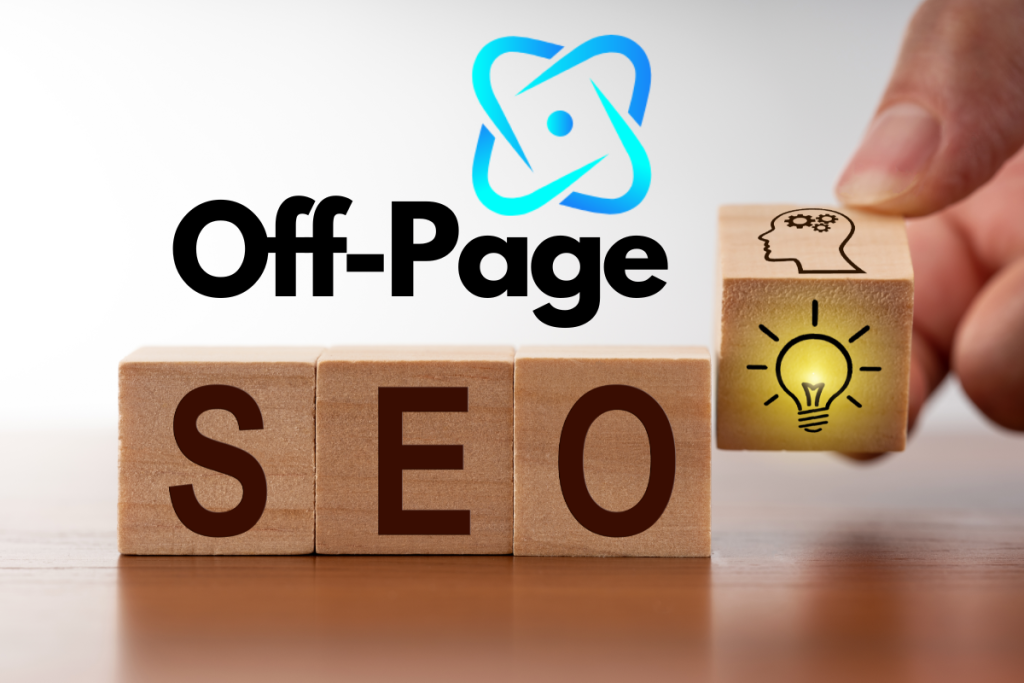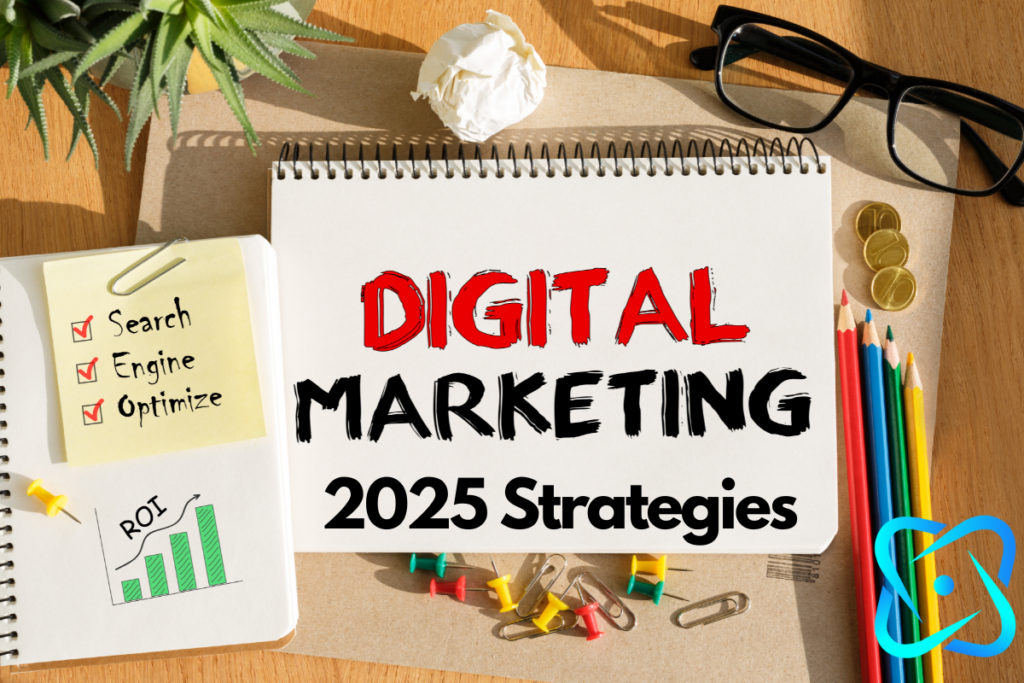Off-Page SEO: Building Authority Beyond Your Website
In the vast and ever-evolving world of digital marketing, understanding off-page SEO is crucial for building a robust online presence. While on-page SEO focuses on optimizing elements within your website, off-page SEO extends beyond your pages, emphasizing the importance of external factors. These factors can significantly influence your website’s authority, relevance, and trustworthiness in the eyes of search engines. In this blog post, we’ll delve into the world of off-page SEO, exploring its components, benefits, and actionable strategies to enhance your website’s authority and search engine ranking.
What is Off-Page SEO?
Off-page SEO refers to all the activities and strategies implemented outside your website to improve its search engine ranking. These activities primarily aim to enhance the website’s authority by building quality backlinks, fostering social media engagement, and establishing a brand presence across various platforms. According to a study by Moz, off-page factors carry more than 50% of the ranking weight in Google’s algorithm, highlighting their importance in SEO success.
Backlink Building: The Backbone of Off-Page SEO

Backlinks, or inbound links, are links from other websites pointing to your website. They act as votes of confidence, signaling to search engines that your content is valuable and trustworthy. However, not all backlinks are created equal. Here are some strategies to build high-quality backlinks:
- Guest Blogging: Guest blogging is a powerful strategy that allows you to connect with authoritative voices in your niche while showcasing your expertise. By contributing high-quality guest posts to well-respected blogs, you not only enhance your credibility but also tap into a broader audience. When crafting guest posts, focus on delivering content that is genuinely relevant and valuable to the blog’s readership. This not only increases the likelihood of your content being accepted but also encourages engagement and sharing, further extending your reach.
- Broken Link Building: Broken link building is a savvy technique that involves identifying broken links on reputable websites and offering your own content as a replacement. This strategy serves a dual purpose: it assists webmasters by improving their site’s user experience and earns you a valuable backlink in return. Start by using tools like Check My Links or Ahrefs to find broken links on sites within your niche. Once identified, reach out to the site owner with a friendly email, suggesting your content as a suitable replacement. This approach not only positions you as a helpful resource but also increases your chances of securing a backlink from a high-authority domain.
- Influencer Outreach: Collaborating with influencers in your industry can significantly boost your content’s visibility and the likelihood of acquiring backlinks. Influencers have established communities and trust within their audience, making them powerful allies in content promotion. Begin by identifying influencers whose values and audience align with your brand. Reach out to them with a personalized message, proposing a collaboration that benefits both parties. Whether through guest appearances on podcasts, co-authored articles, or social media shout-outs, influencer partnerships can drive traffic to your content and enhance your backlink profile.
Social Media Engagement: Amplifying Your Reach

Social media platforms are powerful tools for off-page SEO, providing opportunities to increase brand awareness and drive traffic to your website. A study by Shareaholic found that social media drives 31.24% of overall traffic to websites. To leverage social media for off-page SEO:
Create Shareable Content
Creating content that is not only informative but also engaging is key to capturing your audience’s attention. Shareable content is the kind of material that resonates with your target audience, sparking emotions or providing value that compels them to share it across their networks. Here are some tips to create share-worthy content:
- Know Your Audience: Understand what your audience cares about and tailor your content to meet those interests.
- Add Value: Provide insights, tips, or entertainment that your audience can’t find elsewhere.
- Use Visuals: Incorporate images, videos, and infographics to make your content more appealing.
- Tell a Story: Craft narratives that connect emotionally with your audience, making them more likely to share your content.
Engage with Your Audience
Building a community around your brand is essential for long-term success. Actively participating in conversations and responding to comments shows your audience that you value their input and are committed to maintaining a relationship with them. Here’s how you can engage effectively:
- Be Responsive: Answer questions, address concerns, and thank your followers for their support promptly.
- Host Q&A Sessions: Use live sessions or dedicated posts to interact with your audience directly and answer their questions.
- Encourage Feedback: Ask your audience for their opinions or suggestions and take their feedback seriously.
- Foster a Community: Create groups or forums where your audience can share their thoughts and experiences related to your brand.
Utilize Hashtags
Hashtags are powerful tools for increasing the visibility of your posts and connecting with a broader audience interested in your niche. When used correctly, they can significantly extend your reach. Here’s how to leverage hashtags effectively:
- Research Relevant Hashtags: Use tools like Hashtagify or RiteTag to find popular and relevant hashtags in your industry.
- Keep It Simple: Use a mix of general and niche-specific hashtags to target both broad and focused audiences.
- Create Branded Hashtags: Encourage your community to use a specific hashtag related to your brand, increasing your visibility and fostering a sense of belonging.
- Stay Trendy: Keep an eye on trending hashtags and incorporate them into your posts when relevant to ride the wave of popular discussions.
Brand Mentions: Building Your Online Reputation

Brand mentions, both linked and unlinked, are another critical component of off-page SEO. Search engines recognize these mentions as indicators of your brand’s authority and relevance. To effectively manage your brand mentions:
- Monitor Mentions: Keeping track of your brand’s online mentions doesn’t have to be a daunting task. By using user-friendly tools like Google Alerts or Mention, you can effortlessly stay updated every time your brand name pops up on the internet. Simply set up alerts with relevant keywords, and you’ll receive notifications whenever your brand is mentioned. This proactive approach not only helps you understand how your brand is perceived but also opens up opportunities for engagement.
- Engage with Mentioners: Once you’ve identified who is talking about your brand, it’s time to foster relationships with these mentioners. Whether it’s a positive shoutout, a neutral mention, or even constructive criticism, engaging with the mentioner is key. A simple thank you can go a long way in expressing gratitude. If they haven’t linked back to your site, seize the opportunity to provide additional information that might be of interest to their audience. This not only shows that you value their mention but also positions you as a thoughtful and engaged brand.
- Convert Unlinked Mentions to Links: Unlinked mentions are a hidden treasure waiting to be unlocked. When you come across a mention of your brand that lacks a hyperlink, don’t hesitate to reach out to the website owner or author. Craft a polite and friendly request, thanking them for the mention and gently suggesting that a link to your site could enhance the value of their content. Be sure to highlight how this link could benefit their readers by providing direct access to more information. Remember, the key is to be courteous and appreciative in your approach.
Local SEO: Strengthening Your Local Presence

For businesses targeting a local audience, local SEO is an essential aspect of off-page SEO. Optimizing for local search ensures your business appears in relevant local searches and Google Maps. Consider the following strategies:
- Claim Your Google My Business Listing: First things first, if you haven’t claimed your Google My Business (GMB) listing, now is the time! This free tool is essential for any business looking to improve its local SEO. By claiming your GMB listing, you ensure that your business information appears accurately in Google Search and Maps. Once you’ve claimed your listing, make sure it’s complete and optimized with relevant keywords. Choose the right categories that best describe your business and include engaging images that showcase what you offer. These steps not only enhance your listing’s appearance but also help Google understand your business better, which can improve your search rankings.
- Encourage Customer Reviews: Customer reviews are more than just feedback—they’re a powerful tool for boosting your online reputation and search visibility. Positive reviews signal to potential customers (and search engines) that your business is trustworthy and provides excellent services or products. Encourage satisfied customers to leave reviews on your Google My Business page. You can do this by sending follow-up emails, including review links in your receipts, or simply asking in person. Remember to respond to reviews, whether they’re positive or negative. Engaging with your customers shows that you value their opinions and are committed to improving your services.
- Local Citations: Local citations are online mentions of your business’s Name, Address, and Phone Number (NAP). These citations are important because they help search engines verify your business’s existence and legitimacy. To make the most of local citations, ensure your business is listed in reputable local directories such as Yelp, Yellow Pages, and industry-specific sites. Consistency is key—make sure your NAP information is uniform across all platforms. Inconsistent information can confuse search engines and potential customers, which might hurt your local search rankings.
The Benefits of Off-Page SEO
Implementing effective off-page SEO strategies can offer numerous benefits, including:
- Increased Website Authority: When we talk about website authority, we’re essentially discussing how trustworthy and credible your website appears to both users and search engines. High-quality backlinks and brand mentions are instrumental in enhancing this authority. Imagine receiving a nod from a highly respected figure in your industry; that’s what a quality backlink does for your site. It signals to search engines that your content is valuable and worth referencing, thus positively impacting your search engine rankings. Consistently acquiring these authoritative endorsements builds a robust foundation for your online presence.
- Improved Search Engine Rankings: Search engine rankings are the holy grail for anyone looking to capture organic traffic. Off-page SEO factors, such as backlinks and social signals, play a critical role in determining these rankings. Backlinks act as votes of confidence from other web pages, while social signals, like shares and mentions on platforms such as Facebook and Twitter, indicate your content’s relevance and popularity. Together, these elements are key contributors that search engines consider when ranking your website, ultimately helping you climb to those coveted top spots.
- Enhanced Brand Awareness: Engaging in off-page SEO activities doesn’t just stop at boosting rankings; it also significantly increases your brand’s visibility and recognition across various platforms. By strategically positioning your brand through guest blogging, influencer partnerships, and social media engagement, you create more touchpoints for potential customers to discover and remember your brand. This enhanced brand awareness not only attracts new audiences but also fosters loyalty among existing ones, creating a ripple effect that can lead to increased conversions.
- Higher Referral Traffic: In addition to improving authority and visibility, off-page SEO efforts can drive higher referral traffic. Quality backlinks, especially from reputable sites, act as bridges that lead users directly to your website. When combined with active social media engagement, these strategies can funnel a steady stream of visitors who are already interested in your industry or niche. This targeted traffic is more likely to convert, as these users have found your site through trusted sources, increasing the likelihood of engagement and sales.
Conclusion

Off-page SEO is a vital component of a comprehensive SEO strategy, playing a significant role in building your website’s authority, trustworthiness, and relevance. By focusing on activities such as backlink building, social media engagement, brand mentions, and local SEO, you can effectively enhance your online presence and improve search engine rankings. Remember, off-page SEO is an ongoing process that requires consistent effort and adaptation to stay ahead in the competitive digital landscape. Start implementing these strategies today to build your website’s authority beyond its pages, and watch your online presence thrive.



